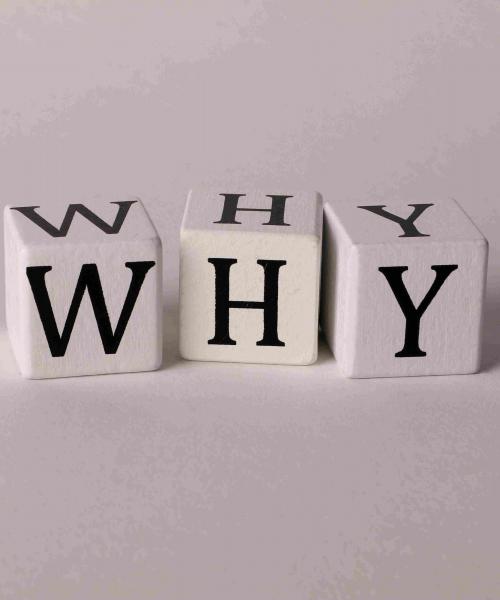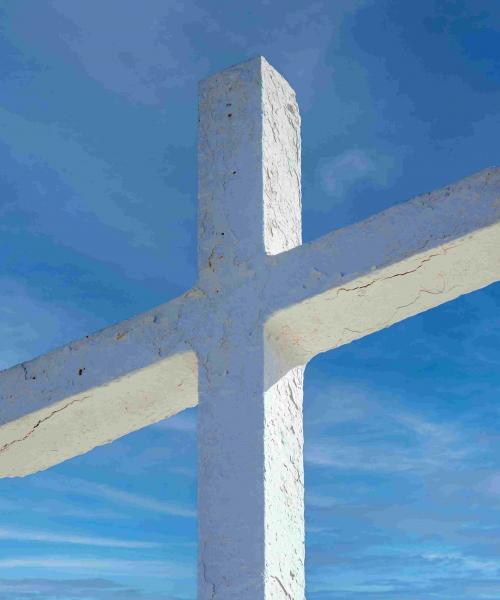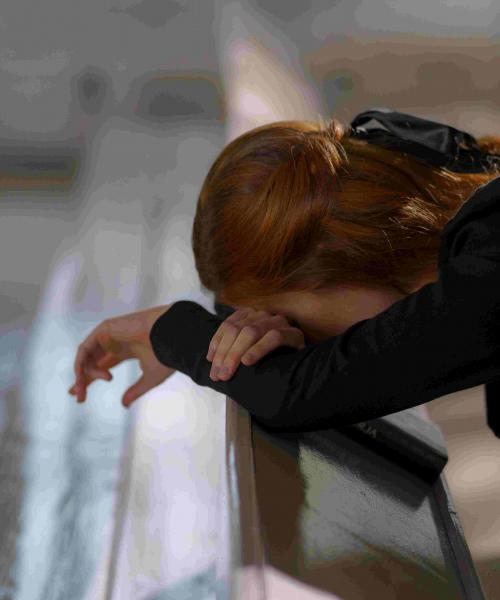
Good news
There doesn’t seem to be much good news in this gospel lesson. This lesson from Luke – a set-up for the story of Jesus arrest and betrayal -is a dismal litany of current events that could just as easily have been pulled from modern headlines: kingdoms toppling – betrayal and death; earthquakes, fire, flood. There is no good news here.
But Jesus never offers us a word without hope. So where can we find hope in this?
As for these things that you see, the days will come when not one stone will be left upon another; all will be thrown down.’
Jesus talks about the temple stones being thrown down, and his disciples assume that this is a feature of ‘the end of the world as they know it.’ Religious and political upheaval are bound to result – such destruction must have a reason and a consequence. But Jesus doesn’t seem to fussed – or at least, he doesn’t want his friends to worry.
“When you hear of these things…don’t be terrified.” Scripture quite often addresses human fear – and Jesus is sometimes suggesting that fear is connected to a lack of faith – but hearing Jesus this morning, I think we could be forgiven a little fear.
Wars’ rumours of war, earthquakes, famine, the toppling of kingdoms – this is the stuff that still gets the heart racing. “Don’t be terrified” says Jesus “for these things MUST HAPPEN first, but the end won’t follow immediately.” (great! – still terrified…) “…they will arrest you and persecute you (fantastic – can hardly wait) “and you will be turned over to the authorities (civil and religious)”…and now, the good news. This will give you a chance to testify – to stand as witnesses.
Isn’t that great? The world (Jesus says) will go to hell in a handcart all so you can testify. And your testimony shouldn’t be some carefully prepared statement – no, not at all. “I will give you words and a wisdom that none of your opponents will be able to withstand or contradict.”
Are you feeling hopeful yet? A lot of talk about destruction and death, all for the promise of a chance to ‘bear witness’ – Jesus is asking us to bring the good news – so, how does that work?
There are people who would tell you that suffering is the way to redemption - that our struggles and sorrows - are necessary. Otherwise, we would never appreciate ‘all that God has done for us.’ I used to wonder about that.
When people shared their stories with me – faith stories, meant to encourage me, a ‘new Christian.’ Stories of loss and misery; stories from the very darkest corners of society. And yes, they were often inspiring. It is incredible that folks can endure such heartache, or abandonment, or abuse or addiction – and still manage to maintain their humanity. Yet, suffering and the Christian faith are deeply linked.
My own journey has been more about discovery than suffering. No ‘mountain-top moment’ of revelation for me, just a slow, steady trip with countless ‘aha!’ moments along the way. And yes, the world has changed – sometimes in ways that seem to echo Jesus’ warning to his disciples from today’s gospel passage. Social strife – natural disasters – power struggles and violent conflicts; all these have been part of the fabric of life in my fifty-nine years. And the good news – the thing that brings me hope – is not that ‘bad stuff is happening, so we must be near the end.’ No, the good news is that I continue to find ‘words and wisdom’ in an ever-changing, often terrifying world that waits on the painfully slow process of God’s redemption.
For all the mischief and misery in this particular gospel, I have come to believe that this is the point of it. Don’t be fooled, Jesus says, by those who think they have all the answers – who tell you “here I am” or assure you “the end is near.” DO NOT GO AFTER THEM, is what Jesus says.
Don’t take the bait that tempts you to consider that God requires your suffering in order to grant redemption. And don’t mistake the regular workings of this broken world and its broken people for a sign that God has had enough and is going to tear the system down once and for all. Stand up. Be faithful. Bear witness ‘to the hope that is in you.’
That hope doesn’t lie in the destruction of things, but has its roots in the creation of things.
Our hope (the Psalmist reminds us) is in the name of the Lord, who made heaven and earth. Our hope is in the power of love that extends to the limits of time and space. Our hope is in the power that raised Jesus from the dead.
Jesus; our best example of how to witness to that hope. Who was questioned, mocked, persecuted, arrested convicted and executed. His was a life lived under the shadow and threat of utter destruction…and yet, he was found to be kind, fair, steadfast, compassionate, hospitable – in short, Jesus embodied hope in a hopeless time.
The political situation was treacherous. The social order was oppressive. And through it all, Jesus bore witness to God’s promise of grace.
Yes, Jesus suffered – and died – for his witness. And yes, people do still suffer and die for their faith – I don’t want to diminish that reality. But we have an opportunity to stand in the chaos of our days and witness to another way of living, loving and imagining the world. It doesn’t require extensive training or any eloquence at all. All it takes is the belief that God has a better idea – that compassion is better than belligerence; that peace is preferable to war; that kindness offers more opportunities than greed.
All it takes is the conviction of the prophet:
Surely God is my salvation;
I will trust, and will not be afraid,
for the Lord Godis my strength and my might,
and has become my salvation.
All it takes is to follow the example of Jesus.
 St. John's
St. John's




